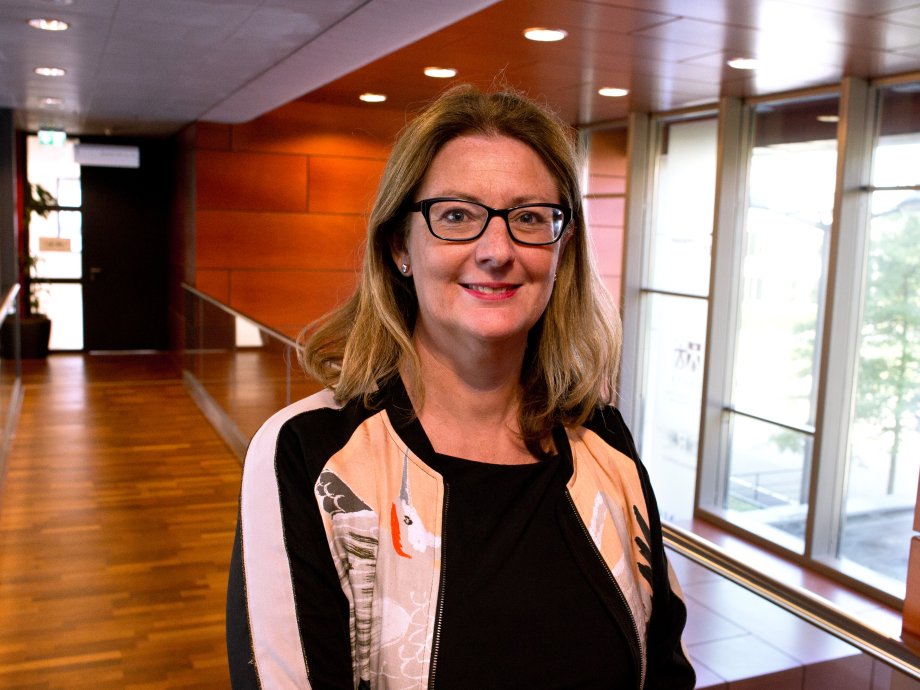A lot can change in 35 years
'2021 is going to be a special year for us,' says director Melanie Peters. 'We were founded 35 years ago. After the coming elections, the Dutch House of Representatives will have a permanent committee on digitisation issues. And, for the first time since 2008, the Rathenau Instituut will once again chair EPTA, the international association of organisations that have the same task as we do.'

In short:
- Gerhart Rathenau advocated that both citizens and parliament should think about and discuss the social consequences of a new technology such as microelectronics.
- We are now at the beginning of new, far-reaching changes.
- The Rathenau Instituut is making plans for its anniversary year.
‘It's hard to imagine now, but at the end of the 1970s, hardly anyone in the Netherlands had a computer at their disposal. Computers were for hobbyists, universities and a handful of larger companies. Most Dutch people could not imagine that the time would come when large groups of people would be working from home on a daily basis.
‘The government did see opportunities for what was then called microelectronics. The Minister for Science Policy appointed a committee to map out the opportunities and threats. The committee was chaired by Gerhart Rathenau, professor of experimental physics and former director of Philips' physics laboratory in Eindhoven.
‘The most important advice of the Rathenau Commission was that society should be pro-actively prepared for the advent of microelectronics. Citizens should be involved in thinking about and discussing the social consequences of this new technology. The social significance of technology should be systematically studied through technology assessment.
‘The urgency of that opinion was reinforced by other new technological possibilities that were the subject of heated political and social debates, such as nuclear energy and artificial reproduction. In 1986, the Minister of Education and Science established the Nederlandse Organisatie voor Technologisch Aspecten Onderzoek (Dutch Organisation for Technological Research). This name was changed to the Rathenau Instituut in 1994.
Corona
‘Last year, the fact that our society has changed radically in the last 35 years became abundantly clear. One of the reasons that the coronavirus did not succeed in paralysing society was that our lives could largely be transferred to the digital world. Many Dutch people started working from home or followed digital education. As an institute, we responded to this based on our knowledge. We produced, for instance, a report on points of concern about digital techniques that employers can use in the future to monitor their employees and also a blog series on digitisation in education. We informed parliament on how to successfully and responsibly use the new corona apps and the vaccines against corona.
‘At the same time, it also became clear that we are only at the beginning of yet another profound change. Scientific developments in artificial intelligence, augmented reality and speech technology will increasingly shape our daily lives in the years to come. We drew up ten design requirements for the digital society of tomorrow. Together with other parties, we organised a public debate on new techniques for adapting the DNA of future humans. Last year, we published a total of 25 reports. Via 21 Messages to parliament, we informed the House of Representatives and the Senate.
Parliamentary Committee
‘The fact that times have changed is also evident from the decision of the Dutch House of Representatives at the end of February. At that time, a large majority voted in favour of setting up a permanent Digital Affairs Committee. After the elections, this committee will ensure that members of parliament get a better grip on the positive and negative consequences of digitisation.
‘In 2020, on behalf of parliament, we mapped out how other national parliaments deal with digitisation issues. In doing so, we made use of our contacts within EPTA. This is the international partnership of 23 organisations that inform parliaments about the possible social consequences of scientific developments and new technologies.
‘In 2021, we will be chairing EPTA. If corona allows, directors and staff of these institutes will come to the Netherlands later this year. They are not only linked to national parliaments, but also to the European parliament. Recently, South Korea also became a member. In EPTA, you see that countries often have the same technological challenges, but sometimes they value them very differently. When it comes to camera surveillance in public spaces we are mainly worried about our privacy, while in Mexico, where about 100 murders take place every day, they mainly hope that it will increase their safety.
We will report on exactly how we are going to celebrate our anniversary, how we will fulfil our role as chair of EPTA, and what we will be doing in 2021 on our website and in the newsletter.